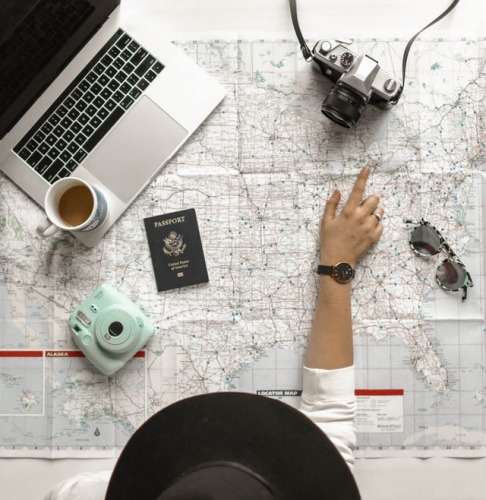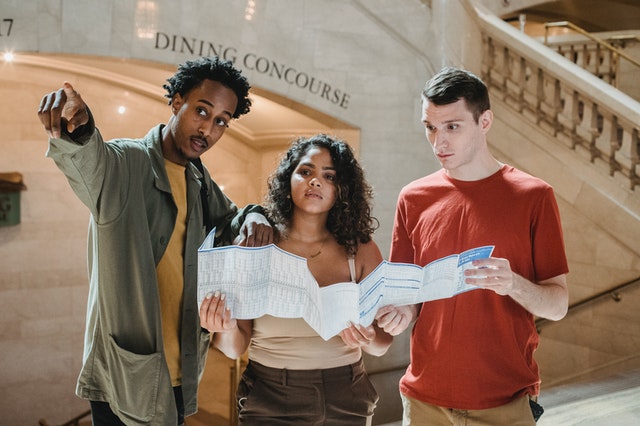School trips have numerous educational benefits for students.
Let’s consider some of them below!
Contents
The Advantages of School Trips
First of all, going for school tours reinforces knowledge gained in a classroom.
Why so? Probably because the material comes to life, so students can visualize, experience, and discuss it.
For sure, this contributes to effective studying.
Also, multimedia used in some educational tours grabs students’ attention and encourages them to partake in exciting learning experiences, which is beneficial for the assimilation of novel information.
Another advantage of school trips is that they provide a cultural experience necessary for the understanding of subjects like History, Arts, Sociology, etc.
And last but not least, such activities allow students to communicate with peers outside the classroom and create nice lifelong memories.
Despite a large number of advantages, students rarely go on school trips.
Why so? Maybe, because of the big school workload that doesn’t leave time for anything else except for learning.
Teenagers often get absorbed with the study as it requires complete devotion.
Hence, if you decide to travel, make sure that it won’t harm your academic outcomes.
You should submit all your assignments or pay someone to write essay before leaving your study setting.
This way, you can enjoy your educational trip to the fullest, without worrying about upcoming assessments.

How to Plan a School Trip Step by Step
Start as Early as Possible
Planning in advance increases your chances to have a successful trip.
You should start organizing and fundraising as early as possible.
Usually, it takes up to a few months to agree on a destination with students, get necessary permissions from school administration, and find volunteers.
Therefore, give yourself plenty of time to get all the details in place.
Turn to an Educational Tour Operator
There is no need to plan the whole trip on your own.
To save your money and time, you can consult a company that specializes in educational tours for students.
An agent can help you with choosing the right options for your teaching purposes.
Tour operators usually offer a wide range of possibilities you may have never considered before.
They can provide you with great support, answering any questions and addressing your concerns.
Instruct Students and Parents
After planning out the basics of your trip and receiving administrative approval, it’s time to hold informational meetings for students and parents.
To track who attends the gatherings, you can create a sign-in sheet.
Also, a great idea could be to distribute registration forms to students and parents at the meeting.
Include the Trip Into Your Curriculum
No matter what kind of tour you are going to organize, it’s important to integrate it into your curriculum.
To make the most out of your trip, plan a few lessons beforehand that are directly related to it.
Most education experts believe that this helps students build more associations about the topic and effectively assimilate knowledge.
You can also ask pupils to do background research on the places you are going to visit and share their insights with classmates during the lesson.
Set the Rules
Create a list of rules prior to the trip and send it to students and their parents.
Make sure that pupils know what clothing to pack for the trip and what things they are not allowed to bring with them.
Also, remind parents that you cannot be with the kids every single minute, so they must teach their children responsibility and explain some code of conduct.
You can even ask them to sign a contract before taking part in a tour.
This will help you avoid accidents.
Find Volunteers
It’s really a big challenge to keep an eye on all the students and take control of the tour organization at the same time.
Hence, you might need some help from volunteers and chaperones.
Importantly, you should find them and assign particular responsibilities in advance, so there will be no confusion when you arrive at the destination.
Ensure that everyone clearly understands their roles.
Final Thoughts
Pedagogical experts state that doing some learning activities in the educational environment helps learners retain more information.
Therefore, school tours must be an integral part of the study curriculum.
They are not only an enjoyable way to spend time out of the classroom but a great teaching tool as well.
Hopefully, the recommendations given in this article helped you understand how to plan a trip for students in the easiest and most effective way possible.











